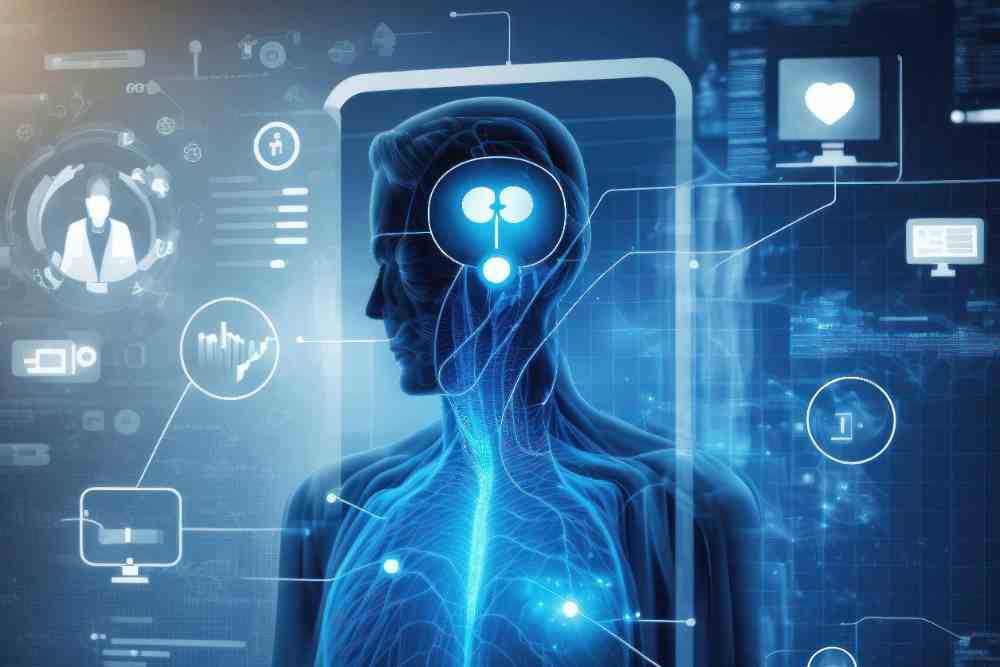In a groundbreaking announcement, Sundar Pichai, CEO of Google, revealed that the company’s AI technology has the ability to analyse eye scans and predict heart-related diagnoses, along with other diseases. This remarkable development has the potential to revolutionise healthcare by eliminating the need for traditional diagnostic methods such as CT scans, MRIs, and X-rays. Let’s explore the implications of this cutting-edge advancement.
Every Eye Tells a Story:

To understand the body, look into the eyes. This age-old adage aligns perfectly with Google’s vision for AI-driven healthcare. With each eye scan, Google’s AI technology unveils a wealth of information, bringing us closer to a healthier future. The potential for advancements in health technology is vast, and the impact on healthcare delivery is becoming increasingly evident.
Expanding Horizons: Beyond Heart Disease Diagnosis:
Google’s AI capabilities extend far beyond diagnosing heart disease. Earlier this year, the company unveiled an algorithm capable of predicting a person’s age, smoking status, and five-year risk of heart attack using retinal imagery. This breakthrough opens up a world of possibilities for early detection and diagnosis of various conditions, including dementia, multiple sclerosis, Parkinson’s, Alzheimer’s, schizophrenia, and more.
Dr.AI: A Click Away from Disease Diagnosis:
Imagine obtaining a disease diagnosis with a single click. With Google’s AI, it’s becoming a reality. Patients or suspects can capture an image of their eye, upload it to the cloud, and within seconds, receive a diagnosis on their screen. The immense potential of this technology is awe-inspiring, offering convenience, efficiency, and improved accessibility to healthcare.

The Power of Google’s AI in Health Tech:
Google’s journey into AI-driven healthcare began four years ago when researchers from Google and Aravind Eye Hospital joined forces to develop an automated tool for detecting diabetic retinopathy, a leading cause of blindness worldwide. Their algorithm analyses retinal images and provides rapid diagnoses, revolutionising the landscape of eye disease detection. With over 30,000 patients tested to ensure accuracy, this system is on the verge of independent operation. Additionally, Google and Verily scientists harnessed machine learning to analyse a vast dataset of eye scans and general medical data from nearly 300,000 patients, leading to the development of a cardiovascular prediction algorithm.
The Future of Health Diagnostics:
This groundbreaking method of cardiovascular risk assessment not only offers quick and easy solutions for clinicians but also represents a paradigm shift toward AI-powered scientific discovery. By analysing existing medical data, AI algorithms can generate new medical insights autonomously, paving the way for unprecedented advancements in diagnostic capabilities. Furthermore, the potential of this technology extends beyond high-tech medical facilities, allowing for vision screening in remote areas through affordable and portable solutions.
Sundar Pichai’s announcement highlights Google’s AI-driven future, where a simple eye scan can unveil hidden health problems and predict potential cardiovascular events. This transformative technology has the power to revolutionise healthcare and diagnosis, providing faster, more accurate, and accessible healthcare solutions. As we enter this exciting age of health technology, the possibilities are limitless, and the future of medical diagnostics looks brighter than ever before.
